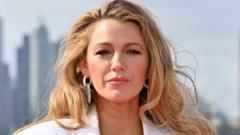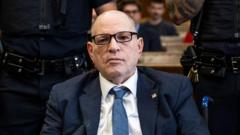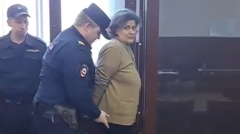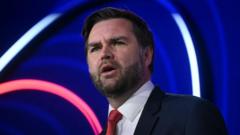**In a high-profile legal case, Blake Lively has accused Hollywood figures of orchestrating a scheme to damage her public image while she sought to address her own experiences of harassment.**
**Blake Lively Unveils Allegations of Manipulative Tactics in Hollywood's PR Landscape**

**Blake Lively Unveils Allegations of Manipulative Tactics in Hollywood's PR Landscape**
**Actress claims 'coordinated campaign' aimed to ruin her reputation amid harassment allegations against co-star**
Blake Lively, known for her roles in popular productions such as *Gossip Girl* and *The Sisterhood of the Traveling Pants*, has recently emerged at the center of a controversy that she alleges illuminates darker strategies within Hollywood’s reputation management. In a legal filing, Lively asserts that following her complaints of sexual harassment against her co-star and director Justin Baldoni during the promotion of *It Ends With Us*, a sophisticated retaliation campaign targeted her reputation.
This summer, as Lively promoted her film, she found herself facing social media backlash, accused of trivializing domestic violence themes. Disturbing past interviews resurfaced, turning public sentiment against her. While Lively described her experience of being painted as the "public enemy number one," the legal action she has initiated claims that Baldoni and his studio orchestrated a "weaponized digital army" and disseminated misinformation to manipulate public perception.
In documents submitted to the courts, Lively's legal team presented text exchanges between Baldoni's publicist and crisis management professionals. These exchanges portrayed strategies aimed to manipulate social media narratives and implant manufactured theories about Lively's character. Allegations were made that a coordinated effort was set in motion to maintain negative perceptions of Lively following her harassment claims.
Baldoni’s representatives, however, have vehemently denied Lively's accusations. They assert that the negative press was a natural product of Lively's actions rather than part of a strategic smear campaign. According to Bryan Freedman, the lawyer for Baldoni and his associates, Lively had allegedly made multiple demands that prompted the hiring of crisis specialists, indicating that her own conduct had led to the backlash.
Support for Lively has emerged from colleagues and peers in Hollywood, including Amber Heard, who emphasized the malevolent potential of social media in tarnishing reputations. Heard's comments resonate with the shared experiences of female public figures facing intense scrutiny and public backlash online.
Professional analysts within the PR and legal industries have raised flags about the operations discussed in the exchanged texts, seeing them as an illustration of commonplace tactics where PR agents employ negative spins against rivals. This legal battle may not just impact Lively's career but may also provoke wider conversations about the ethics of crisis management in Hollywood, where narrative manipulation often shrouded in confidentiality might lead to significant reputational fallout.
As the case unfolds, criticism has surfaced regarding the nature of audience perception and the ethical responsibilities of public figures, along with the taxpayer-funded elements of digital warfare in personal disputes. The implications of Lively's allegations touch on wider societal issues concerning trust, manipulation, and the portrayal of women in the entertainment industry, raising pivotal questions about accountability and integrity in the age of social media.




















